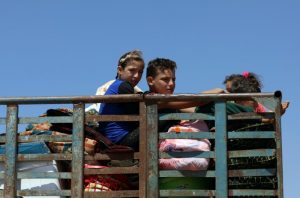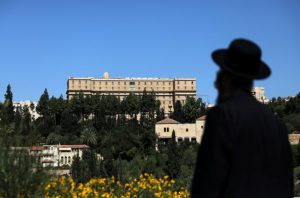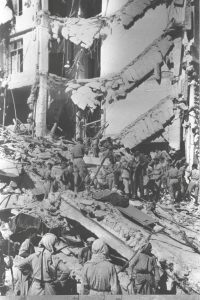
By Tuvan Gumrukcu and Nevzat Devranoglu
ANKARA (Reuters) – Turkish President Tayyip Erdogan won sweeping new executive powers on Monday after his victory in landmark elections that also saw his Islamist-rooted AK Party and its nationalist allies secure a majority in parliament.
Erdogan’s main rival, Muharrem Ince of the Republican People’s Party (CHP), conceded defeat but branded the elections “unjust” and said the presidential system that now takes effect was “very dangerous” because it would lead to one-man rule.
A leading European rights watchdog that sent observers to monitor the voting also said the opposition had faced “unequal conditions” and that limits on the freedom of media to cover the elections were further hindered by a continuing state of emergency imposed in Turkey after a failed 2016 coup.
Erdogan, 64, the most popular – yet divisive – leader in modern Turkish history, told jubilant, flag-waving supporters there would be no retreat from his drive to transform Turkey, a NATO member and, at least nominally, a candidate to join the European Union.
He is loved by millions of devoutly Muslim working class Turks for delivering years of stellar economic growth and overseeing the construction of roads, bridges, airports, hospitals and schools.
But his critics, including rights groups, accuse him of destroying the independence of the courts and press freedoms. A crackdown launched after the coup has seen 160,000 people detained, and the state of emergency allows Erdogan to bypass parliament with decrees. He says it will be lifted soon.
Erdogan and the AK Party claimed victory in Sunday’s presidential and parliamentary elections after defeating a revitalized opposition that had gained considerable momentum recently and looked capable of staging an upset.
“It is out of the question for us to turn back from where we’ve brought our country in terms of democracy and the economy,” Erdogan said on Sunday night.
His victory means he will remain president at least until 2023 – the centenary of the founding of the Turkish republic on the ashes of the Ottoman Empire by Mustafa Kemal Ataturk. Erdogan’s foes accuse him of dismantling Ataturk’s secular legacy by bringing religion back into public life.
Erdogan responds to such criticism by saying he is trying to modernize Turkey and improve religious freedoms.
With virtually all votes counted, Erdogan had 53 percent against Ince’s 31 percent, while in the parliamentary vote the AKP took 42.5 percent and its MHP nationalist allies secured 11 percent, outstripping expectations.
Turkish markets initially rallied on hopes of increased political stability – investors had feared deadlock between Erdogan and an opposition-controlled parliament – but then retreated amid concerns over future monetary policy.
“MAJOR DANGER”
The vote ushers in a powerful executive presidency backed by a narrow majority in a 2017 referendum. The office of prime minister will be abolished and Erdogan will be able to issue decrees to form and regulate ministries and remove civil servants, all without parliamentary approval.
“The new regime that takes effect from today is a major danger for Turkey… We have now fully adopted a regime of one-man rule,” Ince, a veteran CHP lawmaker, told a news conference.
The secularist CHP draws support broadly from Turkey’s urban, educated middle class. It won 23 percent in the new parliament and the pro-Kurdish HDP nearly 12 percent, above the 10 percent threshold needed to enter parliament.
The HDP’s presidential candidate, Selahattin Demirtas, campaigned from a prison cell, where he is detained on terrorism charges he denies. He faces 142 years in prison if convicted.
The Organization for Security and Cooperation in Europe, a rights watchdog, said high voter turnout, at nearly 87 percent, demonstrated Turks’ commitment to democracy. But the OSCE also cited some irregularities and echoed opposition complaints about heavy media bias in favor of Erdogan and the AKP.
“The restrictions we have seen on fundamental freedoms (due to the state of emergency) have had an impact on these elections,” Ignacio Sanchez Amor, head of the OSCE observer mission, told a news conference in Ankara.
The MHP takes a hard line on the Kurds, making it less likely that Erdogan will soften his approach to security issues in mainly Kurdish southeast Turkey and neighboring Syria and Iraq, where Turkish forces are battling Kurdish militants.
The Turkish lira and stocks sagged after initial gains, and economists said the outlook was uncertain.
“Any rally could quickly go into reverse if President Erdogan uses his strengthened position to pursue looser fiscal and monetary policy, as we fear is likely,” said Jason Tuvey, senior emerging markets economist at Capital Economics.
The lira is down some 19 percent since January and investors fear Erdogan, a self-declared “enemy of interest rates”, may pressure the central bank to cut recently hiked borrowing costs to stimulate economic growth despite double-digit inflation.
Seeking to reassure investors, Erdogan’s chief economic adviser, Cemil Ertem, told Reuters the new government would focus on economic reforms and budget discipline. He added that the central bank’s independence was “fundamental”.
The EU’s executive Commission said it hoped Erdogan would “remain a committed partner for the European Union on major issues of common interest such as migration, security, regional stability and the fight against terrorism”.
Turkey’s years-long EU accession bid stalled some time ago amid disputes on a range of issues, including Ankara’s human rights record, especially since the post-coup crackdown.
Russian President Vladimir Putin called Erdogan to congratulate him but there were no reports of Western leaders doing so, underlining the chill in relations between Ankara and its traditional NATO allies.
(Reporting by Turkey bureau; Writing by Gareth Jones; Editing by Mark Heinrich)














